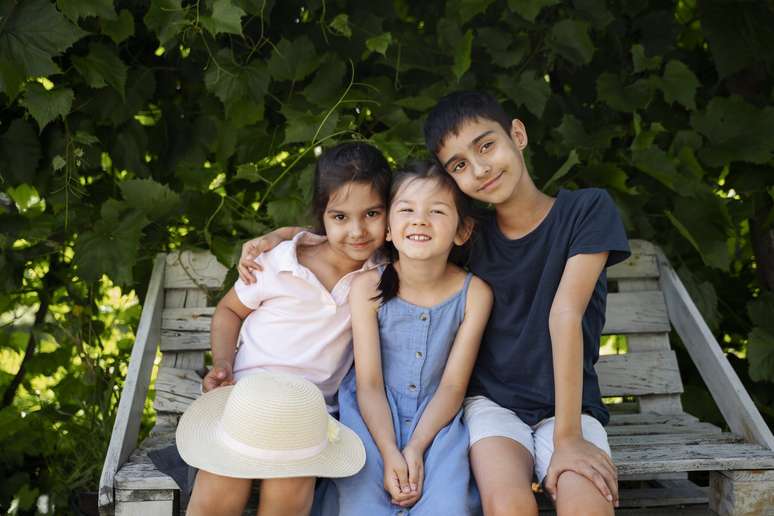Does not being the firstborn or youngest affect your personality? “Middle Child Syndrome,” according to pediatrician, neonatologist, and American Academy of Pediatrics (AAP) Fellow Tatiana Cicerelli Marchini, is a colloquial term used to describe a set of characteristics, or stereotypes, that are supposed to be […]
Does not being the firstborn or the youngest influence your personality?
“Middle Child Syndrome,” according to pediatrician, neonatologist and member of the American Academy of Pediatrics (AAP), Tatiana Cicerelli Marchiniis a colloquial term used to describe a set of characteristics, or stereotypes, that supposedly apply to those who live in
one hundred among the oldest and youngest in families with more children.
“Some believe that middle children may feel neglected and seek attention in various ways, such as being rebellious or developing mediation skills to resolve conflicts. However, it is important to note that these ideas are based on generalizations and do not always apply to all individuals who are middle children. Each person is unique and family dynamics vary widely.
Do parents have favorite children?
The famous debate among families about who gets to be the favorite child leads many people to realize that parents tend to pay more attention to the eldest and spoil the youngest, but do not care as much about the middle child. For Tatiana, this perception may be based on family stereotypes, but it does not always reflect the reality of all families.
Here are some reasons why this dynamic may occur:
- What’s new: Parents are often more excited and anxious about the birth of their first child, which can lead them to pay more attention to it;
- Experience: Parents often have more experience with their younger child, which can lead to a more relaxed and confident approach to parenting;
- Life Stages: Children of different ages have different needs and challenges. This may lead parents to adapt their approach based on each child’s age and developmental stage;
- Stereotypes: Sometimes cultural expectations or family stereotypes can influence parental behavior.
“It is important to remember that parental attention and affection are not limited resources, and many are committed to ensuring that all children feel loved and supported. Open communication between family members is essential to understanding each other’s needs and concerns,” the pediatrician assures.
Most common behaviors in middle children
Larissa also points out that while there is no one-size-fits-all behavior for middle children, there are some that are frequently developed. “For example, strong social skills, being a mediator and conciliator in conflict situations. They may also be more independent because of the need to seek their own attention and identity. The belief that they would be more rebellious would be related to the need to make sure there is something wrong with them and therefore it is up to the parents to reinforce that behavior.”
Are middle children psychologically affected?
Although not in all families, some value and pay more attention to other children than to those in the middle, and this can be noticed from childhood, according to psychologist and member of the Brazilian Psychological Society (SBP), Larissa Fonseca.
Having this perception of devaluation can cause feelings of abandonment and trigger a search for attention in different ways than their siblings. “The psychological impact can vary from person to person, the child could develop emotional deprivation, need to seek external approval, low self-esteem, anxiety, depression and behavioral problems, including risky behaviors,” the psychologist describes. On the other hand, it is also possible that the middle child can use this reality to develop a strong sense of independence and social skills to relate to other people.
Source: Terra
Ben Stock is a lifestyle journalist and author at Gossipify. He writes about topics such as health, wellness, travel, food and home decor. He provides practical advice and inspiration to improve well-being, keeps readers up to date with latest lifestyle news and trends, known for his engaging writing style, in-depth analysis and unique perspectives.








